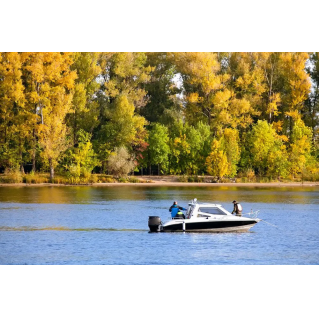Is Your Car Ready for Holiday Travel?
Although some people will not be travelling as much this holiday season due to COVID-19, there will still be a need to drive: a stop at your local grocery; shopping for last minute gifts; a drive to drop off food and gifts on your volunteer routes; and time with family.
Keeping your vehicle running at optimum performance is a year-round responsibility and Continental Battery Co understands that all too well. Because we care about our customers’ safety, we encourage you to be diligent about caring for your vehicle, in general, and especially the condition of its battery.
While it may seem bothersome to think about the health of your vehicle battery, the fact is, you rely on it more than you may realize. Is there anything more frustrating than getting into your car only to find out it won’t start? There are numerous reasons why a battery fails or doesn’t perform at its best and it's best to have an expert battery technician determine that.
Do you know the location of your local Continental Battery distributor? If not, follow this link and you’ll feel better knowing who the go-to guy is for checking out your car battery. Perhaps you’re not using the most efficient battery that’s made for your particular vehicle. It could be that your battery is wearing out and showing signs of slowing down. Sometimes an aging battery will not give you much heads up and one day simply die.
Regular battery check-ups are just as important as oil changes and checking the air in your tires. Consistent maintenance will ensure greater battery life over time and spare you the frustration of getting stuck somewhere.
If you do have the misfortune of having a problem while you’re driving, whether it’s your battery or something else, here are a few smart safety tips to remember.
As soon as you notice a problem, get to the right-hand shoulder of the road, especially if you’re on a highway. As you pull your vehicle off the road, keep the following safety procedures in mind:
- Try to coast along the shoulder until you’re away from any curves in the road behind you. This placement pays off when you’re ready to get back onto the road because you can spot oncoming traffic.
- If the engine dies right on the highway and you can’t get off the road, don’t get out of the car! Sitting in a dead vehicle with traffic piling up behind you is unnerving, but attempting to cross a high-speed freeway on foot is too dangerous.
- If it’s after dark, put the interior light on so that you’re more visible. If the engine is operable, keep it running so that you don’t run the battery down.
- Most heavily traveled highways are also heavily patrolled, and a helpful highway patrol officer will usually come along in a short time.
Whether you’ve managed to park at the side of the road or you’re stuck in a traffic lane, remember these additional safety precautions:
- Roll down the window on the driver’s side, hang out a white cloth or piece of paper, and roll the window back up to secure it in place: The cloth or paper alerts drivers that your vehicle is in trouble and that they should proceed around you.
- If you know that you’re going to need roadside assistance, use your cellphone to call your auto club or the highway patrol right away.
- To avoid being hit by a passing vehicle, never work on your vehicle from the side that’s exposed to traffic. If you can, drive farther off the road to a safe, well-traveled place.
- If it’s daylight, put on your emergency blinkers to alert oncoming traffic. This is not a good idea at night because motorists coming up behind you may think that your vehicle is moving and run into you.
- If it’s nighttime and you’re not stuck in traffic, quickly place warning lights or reflective markers about six feet behind the vehicle to alert traffic, and then get back in the car. If you don’t have lights or markers, either turn on the interior lights manually or leave the car door that’s away from traffic open so that the interior lights stay on.
- If you get a flat tire, do not attempt to change it unless you can do so by getting to the side that is not next to the highway or road.
Vehicle safety is especially important during winter, especially if you have to drive on icy or snowy road. Know how to winterize your car for colder days and make the driving easier on you. And it’s always better to be safe now and plan ahead than to regret later.
Visit Continental Battery Co for more maintenance tips and guidelines for keeping your battery and your vehicle’s overall condition in the best possible condition. We’re looking out for you!







